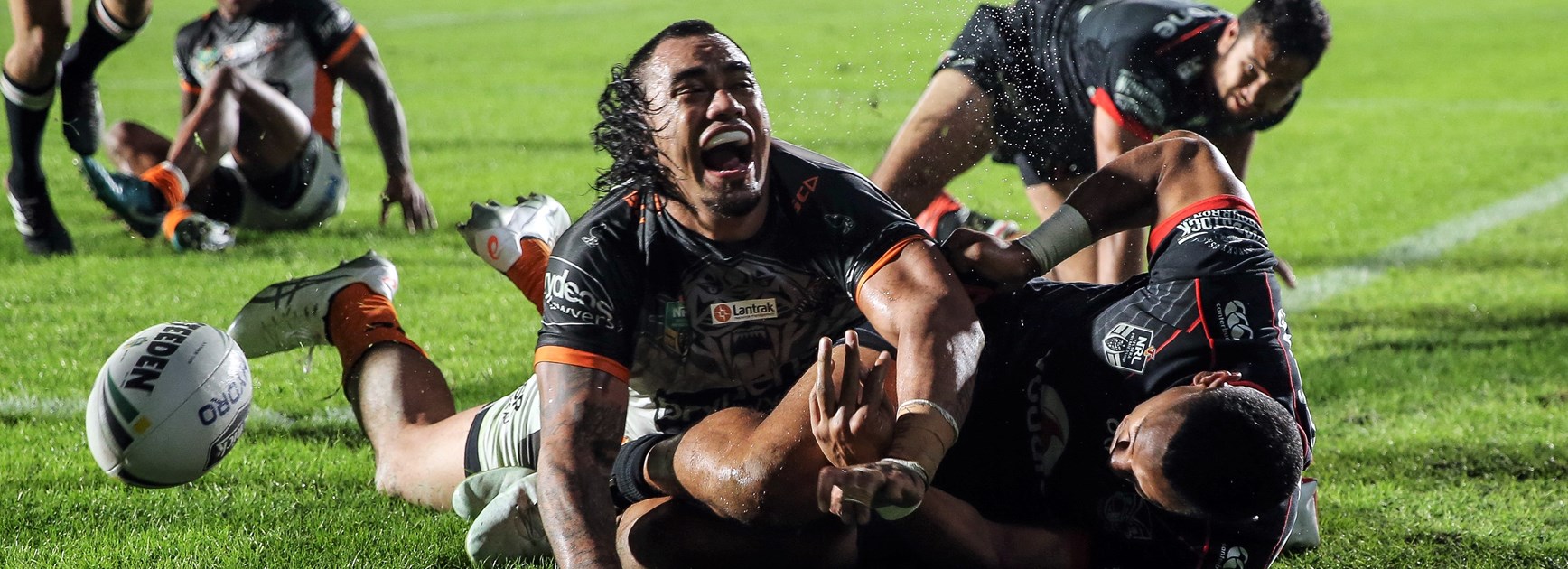
The proposed "Wildcard Weekend" has pros and cons so ultimately it will come down to whether the benefits outweigh the drawbacks when the NRL decides whether to go ahead with the radical change.
If it goes ahead the move would bring in more revenue from crowds and TV rights deals, plus add to the interest late in the season when more teams would still have something to play for in the race to make the playoffs.
But if the proposal gets knocked on the head it would be because of the drawbacks of the system, which are that it could reward mediocrity because teams with a losing record would qualify for the post-season and it would also add more matches for players which only intensifies debate around their workload.
Under the proposal, the teams finishing ninth and 10th would play knockout games against the teams finishing seventh and eighth in week one of the finals, while the top six enjoy a week off.
The two winning clubs would then fill the roles filled by seventh and eighth under the current system, playing away elimination finals against the clubs that finished fifth and sixth, with the current system to otherwise proceed as is.
NRL considering Wildcard Weekend concept
The pros
Generally speaking, the pros of the new system mean a stronger reward for the teams finishing in the top six. In some seasons seventh and eighth make the finals with a winning record as poor as 50% (and in rare cases even less).
The new system would also add interest to more late-season contests which would otherwise have been 'dead rubbers' as far as finals placing are concerned. This would maintain interest in more late-season games and avert the inevitable drop-off in crowds and ratings for those games.
It would also completely remove scheduling issues in terms of short turnarounds leading into the first week of the finals. Currently finalists who play Sunday night cannot be scheduled to play the following Friday, but with the two-game Wildcard Weekend there would be no Friday night game in the first week of finals.
The cons
The flip side is that teams finishing ninth and 10th have an even worse regular season record than seventh and eighth, leading to questions over whether they deserve a crack at semi-final football.
The extra burden on teams finishing seventh or below would mean fairytale runs – such as the 2017 Cowboys and 2009 Eels – into the grand final from eighth position would be far less likely. However, it could also be argued teams that can't finish in the top six deserve a stiffer challenge.
Episode 1 - Moses Mbye and Brad Arthur
What 2018 would have looked like
This system would have had several implications had it been in play in the 2018 season, which was unusual in its closeness among the top eight sides and the drop-off from eighth to ninth. More commonly, there is a bigger spread between first and seventh and a log-jam from around seventh to 11th or 12th.
In 2018, the eighth-finishing Warriors would have started the post-season with a home knockout game against Wests Tigers and the Dragons with a home knockout against 10th-finishing Canberra.
Brisbane, who finished sixth and were blown off the park by the seventh-placed Dragons in week one of the finals, would instead have had a week off before facing either a Dragons team being forced to back up or a Canberra side that finished 10th with 10 wins and 14 losses.
According to the NRL, there were 36 half dead or fully dead matches with no bearing on the finals through the back end of the 2018 Telstra Premiership, but this would have dropped to just eight under the proposed system.
Match Highlights: Warriors v Wests Tigers
Implications for recent seasons
2017
North Queensland's improbable three straight wins to rocket from eighth to a grand final in 2017 would have been even less likely had they had to host the ninth-finishing Dragons in a knockout game before going on to challenge the Sharks, Eels and Roosters. It would have been good news for the fifth-finishing Sharks and sixth-finishing Sea Eagles, who were each knocked out in finals week one upsets by the Cowboys and Panthers respectively.
2016 and 2015
Like in 2018, the team that finished 10th (in this case the 2016 Warriors and 2015 Raiders) would have tasted post-season footy with an unimpressive 10-14 record. On paper there is no reason the main finals games would not have panned out exactly as they did.
2014
A good case study for the proposed system because three teams finished tied for eighth on points and a 50% winning record (Brisbane made the finals on differential while the Warriors and Eels missed out). The Storm, who finished sixth with a 14-10 record, were soundly beaten at home by the seventh-placed Bulldogs, who ended up making the grand final.


